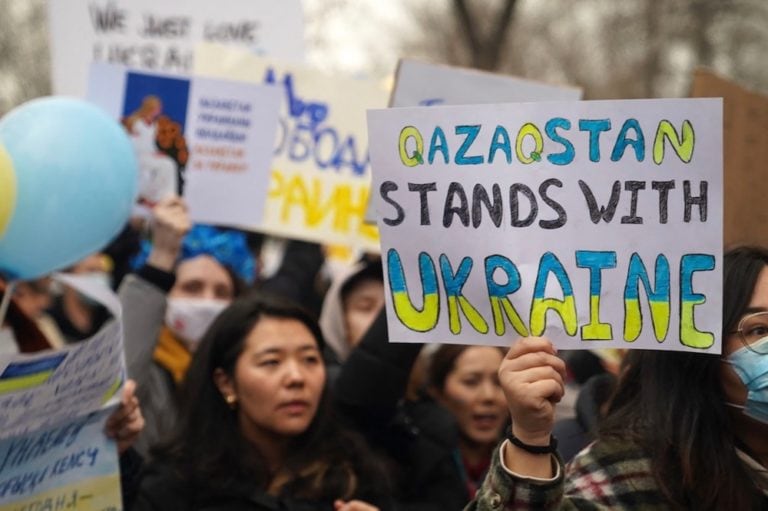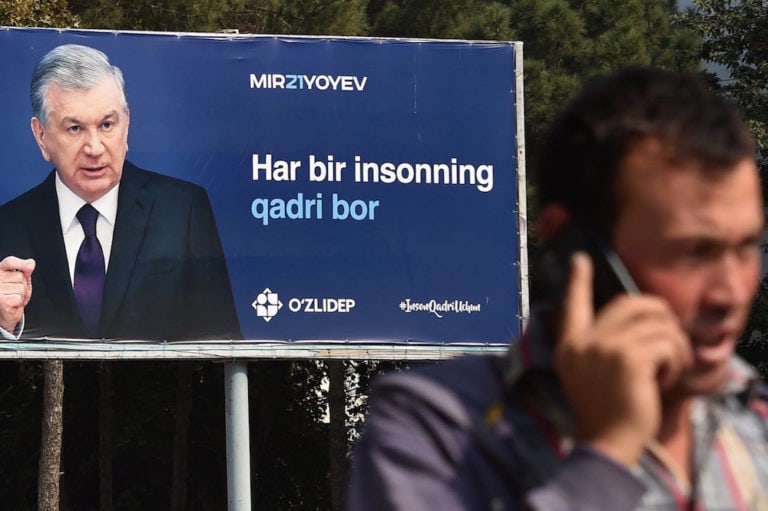Sanjar Umarov was released after serving four years of a seven-year prison sentence on politically-motivated charges.
Freed activist’s condition highlights harsh treatment
More than a dozen activists still behind bars on wrongful charges
(Human Rights Watch/IFEX) – New York, November 30, 2009 – Uzbek political opposition leader Sanjar Umarov’s release from prison earlier this month is a positive development, but Umarov’s poor health and the fact that he was not acquitted of the politically motivated charges that led to his conviction highlight the government’s continued repressive nature, Human Rights Watch said today.
“We are overjoyed that Umarov is no longer behind bars,” said Holly Cartner, Europe and Central Asia director at Human Rights Watch. “Umarov suffered terribly and should never have been imprisoned in the first place.”
Umarov’s ill health also highlights the deplorable conditions for prisoners in Uzbekistan, including several of the more than a dozen imprisoned activists whose cases Human Rights Watch follows closely and who are suffering severe health problems as a result of their imprisonment.
“More than anything, Umarov’s case serves as a chilling reminder of the horrors political prisoners in Uzbekistan have to endure and underscores the urgency of securing their immediate and unconditional release,” Cartner said.
After serving four years of a seven-year prison sentence on politically motivated charges, Umarov was released under a government amnesty. He was reunited with his wife and children in the United States on November 21.
Umarov is the leader of the independent political movement “Sunshine Coalition,” established in 2005 by businessmen and academics. The coalition has close ties with the Ozod Dekhon (“Free Peasants”) opposition political party, and its website openly criticizes what it terms “corrupt government bureaucracies” in Uzbekistan and calls for government reform.
Authorities arrested Umarov in October 2005 and sentenced him in March 2006 to 14 years in prison on politically motivated charges that included embezzlement and extortion. His sentence was later reduced to seven years. Umarov had been serving his sentence at the Kizil-Tepa prison colony, according to a statement released by his family on November 23.
The statement says that Umarov is in poor health as a result of his experience and is likely to spend the upcoming months recuperating. While in detention he was gravely ill-treated and, according to information received by Human Rights Watch, he spent an extended period of time prior to his release in a prison hospital.
“We remain concerned about Umarov’s ill health and hope that he can now receive the care that he needs,” Cartner said. “We are also profoundly concerned about the health and well-being of all the other civic activists who remain behind bars in Uzbekistan, and urge the Uzbek government to release them at once.”
Human Rights Watch called on Uzbekistan’s international partners, in particular the European Union and the United States, to continue to press the Uzbek government to free all those still in prison on wrongful charges. They include: Solijon Abdurakhmanov, Azam Formonov, Nosim Isakov, Gaibullo Jalilov, Alisher Karamatov, Jamshid Karimov, Norboi Kholjigitov, Abdurasul Khudainasarov, Ganihon Mamatkhanov, Farkhad Mukhtarov, Habibulla Okpulatov, Yuldash Rasulov, Dilmurod Saidov, and Akzam Turgunov.


